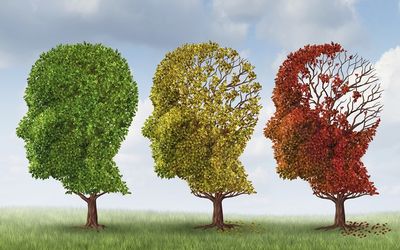Time is over for “one size fits all” dementia treatments. Next: How to best integrate non-pharmacologic and pharmacologic approaches
.
Time to ‘just say no’ to behavior-calming drugs for Alzheimer patients? Experts say yes (Medical Xpress):
“Doctors write millions of prescriptions a year for drugs to calm the behavior of people with Alzheimer’s disease and other types of dementia. But non-drug approaches actually work better, and carry far fewer risks, experts conclude in a new report.
In fact, non-drug approaches should be the first choice for treating dementia patients’ common symptoms such as irritability, agitation, depression, anxiety, sleep problems, aggression, apathy and delusions, say the researchers in a paper just published by the British Medical Journal.
The researchers…reviewed two decades’ worth of research to reach their conclusions about drugs like antipsychotics and antidepressants, and non-drug approaches that help caregivers address behavioral issues in dementia patients…“The issue and the challenge is that our health care system has not incentivized training in alternatives to drug use, and there is little to no reimbursement for caregiver-based methods.”
Study: Assessment and management of behavioral and psychological symptoms of dementia (British Medical Journal)
- Abstract: Behavioral and psychological symptoms of dementia include agitation, depression, apathy, repetitive questioning, psychosis, aggression, sleep problems, wandering, and a variety of inappropriate behaviors. One or more of these symptoms will affect nearly all people with dementia over the course of their illness. These symptoms are among the most complex, stressful, and costly aspects of care, and they lead to a myriad of poor patient health outcomes, healthcare problems, and income loss for family care givers. The causes include neurobiologically related disease factors; unmet needs; care giver factors; environmental triggers; and interactions of individual, care giver, and environmental factors. The complexity of these symptoms means that there is no “one size fits all solution,” and approaches tailored to the patient and the care giver are needed. Non-pharmacologic approaches should be used first line, although several exceptions are discussed. Non-pharmacologic approaches with the strongest evidence base involve family care giver interventions. Regarding pharmacologic treatments, antipsychotics have the strongest evidence base, although the risk to benefit ratio is a concern. An approach to integrating non-pharmacologic and pharmacologic treatments is described. Finally, the paradigm shift needed to fully institute tailored treatments for people and families dealing with these symptoms in the community is discussed.
Learn more:



